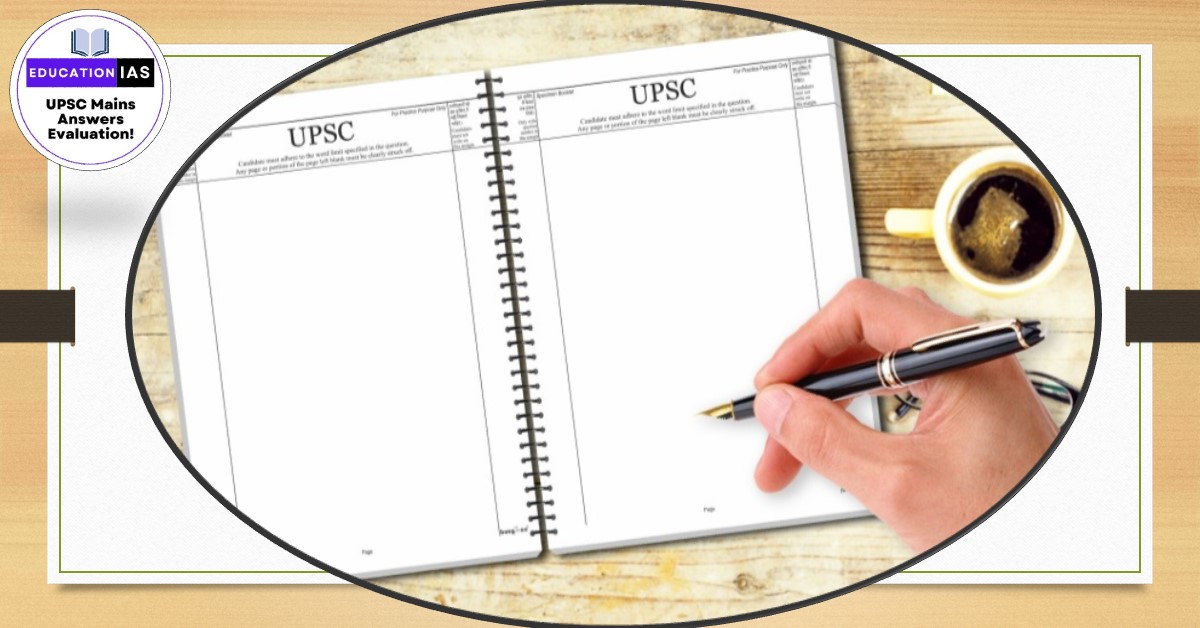Que. To what extent can Germany be held responsible for causing the two World Wars? Discuss critically.
किस सीमा तक जर्मनी को दो विश्व युद्धों का कारण बनने का जिम्मेदार ठहराया जा सकता है? समालोचनात्मक चर्चा कीजिए।
Structure of the Answer
(i) Introduction: Introduce the significant role Germany played in the outbreak of both World Wars, while recognizing other contributing factors.
(ii) Main Body: Examine Germany’s responsibility in causing the wars, assessing its aggressive actions, political ambitions, and external factors involved.
(iii) Conclusion: Summarize the extent of Germany’s responsibility while acknowledging the broader geopolitical landscape that shaped the conflicts.
Introduction
Germany’s aggressive military and political ambitions played a critical role in both World Wars. However, other factors, including European imperial rivalries, alliance systems, and global economic crises, also contributed to the escalation of these conflicts.
Germany’s Role in World War I
(i) Militarism and the Arms Race: Germany, under Kaiser Wilhelm II, engaged in an intense arms race with Britain and France, especially in naval power. This militarization created a climate of fear and distrust among European powers, leading to war preparations.
(ii) Pan-German Nationalism: Germany’s growing nationalism, driven by a desire for territorial expansion and the belief in German superiority, directly influenced its foreign policy. This expansionist attitude alienated its neighbors and led to heightened tensions.
(iii) Alliance System and Escalation: Germany’s alliances, particularly with Austria-Hungary and Italy (Triple Alliance), combined with its support of Austria-Hungary post-Archduke Ferdinand’s assassination, escalated what could have remained a localized conflict into a continental war.
(iv) Schlieffen Plan and Violation of Neutrality: The implementation of the Schlieffen Plan, which involved invading neutral Belgium to swiftly defeat France, reflected Germany’s strategic aggression. The violation of Belgian neutrality was instrumental in bringing Britain into the war.
(v) Shared European Responsibility: While Germany’s actions were aggressive, the broader European system of alliances, competition for colonial dominance, and militarization among other powers, such as Britain and France, also contributed to the outbreak of World War I.
Germany’s Role in World War II
(i) Nazi Ideology and Hitler’s Ambitions: Adolf Hitler’s Nazi ideology, rooted in racial superiority, anti-Semitism, and the desire for Lebensraum (living space), fundamentally reshaped Germany’s foreign policy. Germany sought territorial expansion at the cost of its neighbors’ sovereignty.
(ii) Expansionism and the Treaty of Versailles: Germany’s resentment toward the harsh terms of the Treaty of Versailles, which imposed significant territorial and financial penalties, fueled nationalist sentiment. Hitler exploited this anger, rallying support for the rearmament and expansion of Germany.
(iii) Invasion of Poland and Blitzkrieg: Germany’s invasion of Poland in 1939, using Blitzkrieg tactics, was a clear act of aggression that triggered World War II. Germany’s willingness to wage war without negotiation demonstrated its central role in sparking the conflict.
(iv) Violation of International Agreements: Germany’s repeated violations of international treaties and agreements—such as rearming the Rhineland, annexing Austria (Anschluss), and occupying Czechoslovakia—indicated its deliberate destabilization of European order, drawing other powers into war.
(v) Appeasement and Global Economic Crises: While Germany was the primary aggressor, the failure of Britain and France’s policy of appeasement, as well as the global economic crisis post-Great Depression, created an environment conducive to the rise of militarism and fascism across Europe.
Comparisons of Germany’s Role in the Two World Wars
(i) Leadership and Ideological Differences: In World War I, Germany’s imperial ambitions were guided by a desire for national prominence. In contrast, World War II was driven by radical Nazi ideology, far more extreme and rooted in racial purity and genocidal goals.
(ii) International Aggression: In both wars, Germany displayed aggressive foreign policy. However, the nature of this aggression differed: in World War I, it sought to challenge Britain and France’s colonial dominance, while in World War II, it sought European domination under Hitler.
(iii) Globalization of Conflict: Germany’s actions in both wars had global implications. While World War I was largely a European conflict, the alliances and empires extended its reach globally. World War II saw even more direct global involvement due to Nazi expansionism and alliances with Japan and Italy.
(iv) Role of Nationalism: Nationalism played a key role in both wars. In World War I, it was linked to Germany’s imperial ambitions and desire for power balance, while in World War II, Nazi nationalism took a more radical, ideological turn, involving not only expansion but genocide.
(v) Economic and Diplomatic Failures: In both cases, Germany’s rearmament and disregard for diplomatic channels exacerbated tensions. The inability of the League of Nations after World War I, and the policy of appeasement before World War II, enabled Germany’s militarism to grow unchecked.
Conclusion
Germany played a significant role in both World Wars through militarism and expansionist policies. However, the broader geopolitical dynamics, such as alliances, economic crises, and diplomatic failures, also contributed to these conflicts. Thus, Germany’s responsibility, though substantial, was not exclusive.
